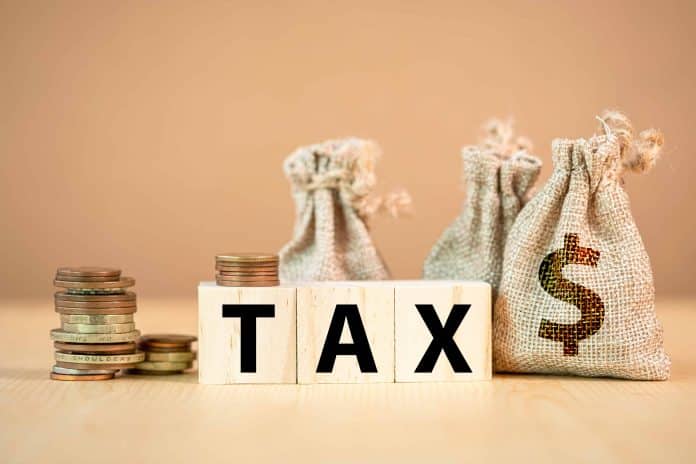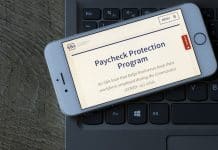
Tax season is something that Americans need to deal with every year. While it can be exciting for some people as they get to benefit from tax returns, others may not be so lucky. Tax season can mean tax debt to deal with. In fact, in America, there is $527 billion in just tax debt. As a way to help Americans in need, the Internal Revenue Service (IRS) offers the Fresh Start Program. This program can be the support that Americans need to help them get a fresh start with their tax debt. However, do you know how this program may be able to provide support?
Your Guide to the Fresh Start Program
Many Americans dealing with tax debt don’t even realize that there are opportunities available that may be able to provide support. The Fresh Start Program is an option to consider. However, the Fresh Start Program doesn’t refer to a singular program. Instead, it is an umbrella term that describes different debt relief options available. This program was launched in 2011 as a way to help taxpayers handle their tax debt legally and effectively. When benefiting from this program, recipients can get some support with handling their tax debt without having to deal with penalties like:
- Jail Time
- Levies
- Liens
- Wage Garnishments
It’s important to keep in mind that the best option will depend on your situation. Everyone is dealing with something different! Some options to consider under the Fresh Start Program includes:
- Installment Agreement (IA)
- Currently Non Collectible (CNC)
- Penalty Abatement
- Offer in Compromise (OIC)
Installment Agreement (IA)
Not everyone has the ability to pay for the tax debt they owe upfront. That is why they may benefit from getting an installment agreement. This assistance opportunity allows taxpayers to split up the debt they owe in payments over a specific timeframe. People can benefit from these repayment setups because it can help them avoid fees, penalties, and an arrest. Generally, state taxing agencies, along with the IRS, can give taxpayers the opportunity to repay their debt with these types of payment plans. This extra time can make the debt much more manageable.
Qualifications for an Installment Agreement
Sadly, not everyone will qualify for this assistance opportunity. Instead, only those that meet the following conditions may be eligible which includes:
- Prove they can’t borrow the amount of tax debt they owe from a lender
- Show proof that they are unable to pay the amount they owe
- Disclose cash and asset information
- Are current with their tax return filings
Understanding How to Apply for an IRS Installment Agreement
It’s best to begin the application process sooner rather than later. The reason this is the recommendation is because the faster you move then the better the chance you will have at not being responsible for penalties and consequences that come from owing tax debt. The best place to start your application is with a tax professional like an accountant.
Currently Non Collectible (CNC)
When people are dealing with debt they can’t handle, they may try to ignore the IRS. However, that’s not the right way to handle the problem at hand. Instead, people may be able to benefit from getting CNC status. This CNC tax program helps taxpayers by stopping the collection of tax debt. That’s why this is a great option for people who owe an unmanageable amount of money to the IRS.
Sadly, just like the other options on this list, not everyone will be able to get this assistance. Only people that the state and IRS recognizes can be eligible. Individuals are only recognized by these entities if they have a monthly gross income that is lower than their allowable expenses based on the national standards. If you reach this point, you will need to provide proof with your financial records to show the financial hardship you are dealing with.
Pros of the CNC Program
This assistance option comes with benefits like:
- Taxpayers can get help when dealing with their tax bill
- Practices like wage garnishment, asset seizures, collections, and bank levies can be stopped
- Taxpayers may not be responsible for the tax debt they owe
Expectations of the CNC Program
This program is a great opportunity for some taxpayers. However, that is why it is important to keep in mind that even if eligible, this program only accepts a portion of taxpayer applications. Since the application process only accepts some taxpayers that apply, the process can be in-depth, and take some time.
Another part of the program to keep in mind is that even though it is possible that taxpayers may not be responsible for their tax debt, that’s not always the case. You will not want to go into the program thinking that it can just erase your debts!
Taxpayers that have CNC status will be monitored by the IRS. This includes periodic financial reviews! Through monitoring taxpayers, the IRS can clearly determine the status of your financial situation. If you achieve CNC status but do not comply with IRS requests for information then you may no longer be able to benefit from CNC status.
Penalty Abatement
When taxpayers earn a penalty, it is done through the IRS’ computer system. Since they use a computer system, these penalties can not only rack up quickly, but can also get to hefty amounts as well. Penalties can make tax debt that is already hard to deal with even more expensive for the taxpayer. That is why individuals dealing with these penalties may be able to get support from penalty abatement.
Penalty abatement can be hard to understand. That is why even though we recommend a tax professional with the other options on this list, we also want to especially recommend it here. That’s because penalty abatement can be especially hard to understand since it has IRS procedures, language, and codes that can be difficult for taxpayers to understand on their own.
What to Know About Reasonable Cause?
Reasonable cause is important when it comes to penalty abatement because taxpayers will need to provide proof of reasonable cause. Your reasonable cause would be what you tell the IRS is the reason that led to you not being able to handle your tax debt. Reasonable cause can include events like:
- Death of a member of a taxpayer’s immediate family
- Disturbances
- Fire
- Inability to Get Records
- Natural Disaster
- Serious illness of a member of a taxpayer’s immediate family
- Serious illness of the taxpayer
Offer in Compromise (OIC)
This assistance opportunity can give support to taxpayers that need help settling their delinquent taxes for less than they owe. If you are someone that wants to lower the amount that you owe to the IRS then this may be the solution for you. Just like other options on this list, not everyone will be accepted into this program. That’s because the IRS only accepts less than 50% of applicants annually!
Expectations of the OIC Program
Again, we are going to sound like a broken record but you should really have a tax professional help you with this opportunity. That’s because they can help you step by step with the application process. Typically, those that are eligible to benefit from this program are 100% compliant on their previous tax returns for 6 years.
If your application is denied, you have the right to send in an appeal. However, you must follow the guidelines around your appeal submission. For example, you only have 30 days to submit your appeal from the date of your rejection letter.
Overall
Taxpayers that have tax debt that they need help with may be able to get support from the Fresh Start Program. This program describes a variety of relief opportunities including:
- Installment Agreement (IA)
- Currently Non Collectible (CNC)
- Penalty Abatement
- Offer in Compromise (OIC)
There are some basic eligibility requirements for this program like:
- Single filers need to earn less than $100,000 every year
- Joint filers need to earn less than $200,000 every year
- Self-employed individuals need to show proof of a 25% decrease in net income
- A person’s tax balance must be no more than $50,000 before the end of the year
If you want to benefit from these program assistance options then you should contact a tax professional. That’s because professionals can give you the support and guidance you need to find an option that would be best for your situation. You should begin the process sooner rather than later!





















